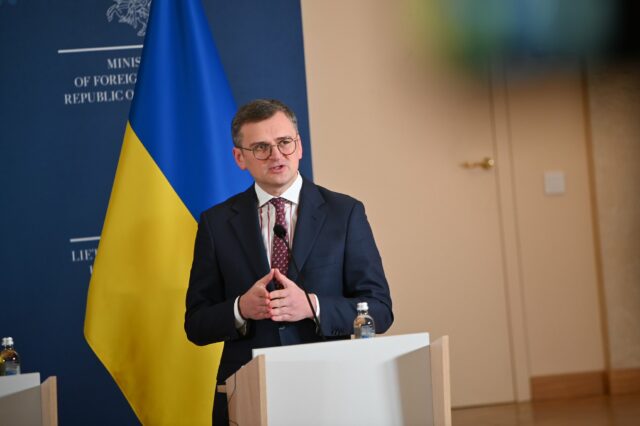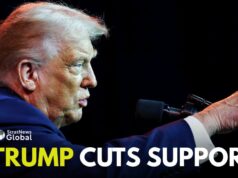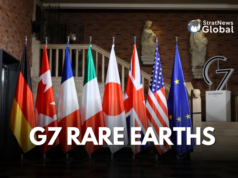“If Russia prevails in Ukraine, Global South countries will be the first to experience a spike in violence and cross-border aggressions in their respective regions. For this reason, it makes perfect sense for them to stand behind Ukraine.”
That was Ukraine’s foreign minister Dmytro Kuleba in an online media interaction from Kyiv. His message was addressed to countries such as India that have opted to stay neutral in the war Russia is waging against Ukraine. Should Moscow prevail in the conflict, now in its third year, it would be the Global South that would be worst hit, he warned, indirectly hinting at India’s issues with China and Pakistan.
He called for stepped-up diplomatic pressure on Russia ahead of the Ukraine Peace Conference in Switzerland to be held later this year, echoing President Zelensky who had said in January that, “We would want the countries of the Global South to be present, for sure,” adding “We would want China to be involved”.
As Kuleba underscored, “I had a very meaningful exchange with my Chinese colleague Wang Yi in Munich. As a result of this conversation, Minister Wang Yi deployed a special envoy (Li Hui) to Ukraine and Europe. We had a good exchange with him in Kyiv. China has a very big role in putting this war in Ukraine to an end because of the special relationship China enjoys with Russia.”
China has in fact endorsed the idea of a peace conference on Ukraine with the foreign ministry calling for “Equal participation of all parties and fair discussion on all peace plans.” The peace plan idea had been floated at Davos in January, where India’s Deputy National Security Adviser Vikram Misri was present. The peace formula is modelled around President Zelensky’s ten principles announced two years ago and rejected by Moscow because it called for the return of all territory occupied by Russia and the trial of “war criminals”.
Kuleba was confident that Ukraine’s $60 billion aid package, now pending in the US Congress, would come through. “I think the American assistance will come. Second, we see our European partners significantly ramping up military production and purchases in third countries to help Ukraine. This helps us fill the gap that has been created by the delay in the US. It does not solve the problem entirely, but it does help to sustain the pressure. We are increasing our own production in weapons.”
But Kuleba also addressed the elephant in the room: concern that support for Ukraine was losing political traction in the US. “Would (the US) support countries that stand by the same rules and principles that the US defends all over the world. This is a much, much broader question than Ukraine. Because the question is if they cannot help Ukraine who can they help?”
He said that with or without US aid, Ukraine would stand up for itself. “Russia began the war in February 2022, but it was forced to accept the Black Sea grain deal in July 2022 which partially unblocked Ukrainian exports. This alleviated a global food crisis.”
Since then, Ukraine had only grown stronger, he claimed. “In August 2023, the Armed Forces of Ukraine established a maritime export corridor and used air defences provided by allies to destroy a significant portion of Russia’s Black Sea Fleet to create a temporary Black Sea corridor Since the establishment of the corridor, Ukraine has exported almost 28 million metric tons of cargo to over 33 nations, most of which were grain and (plant) oil.”
Post the briefing, informed sources confirmed that the Ukrainian foreign minister will be visiting India next week. While not much is known about the details of the visit, these sources stated that Ukraine will be looking to build up support for its peace plan, for which discussions will be held with New Delhi.
Traveller, bibliophile and wordsmith with a yen for international relations. A journalist and budding author of short fiction, life is a daily struggle to uncover the latest breaking story while attempting to be Hemingway in the self-same time. Focussed especially on Europe and West Asia, discussing Brexit, the Iran crisis and all matters related is a passion that endures to this day. Believes firmly that life without the written word is a life best not lived. That’s me, Ashwin Ahmad.





